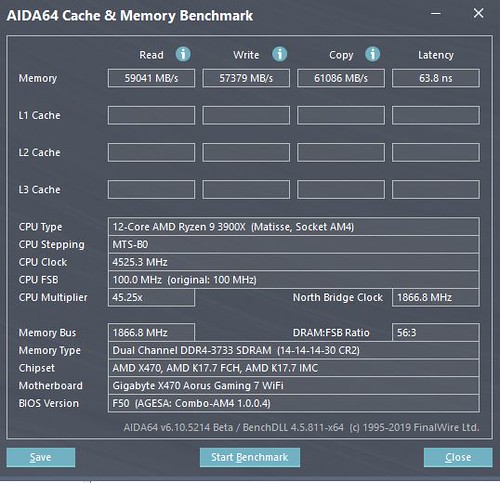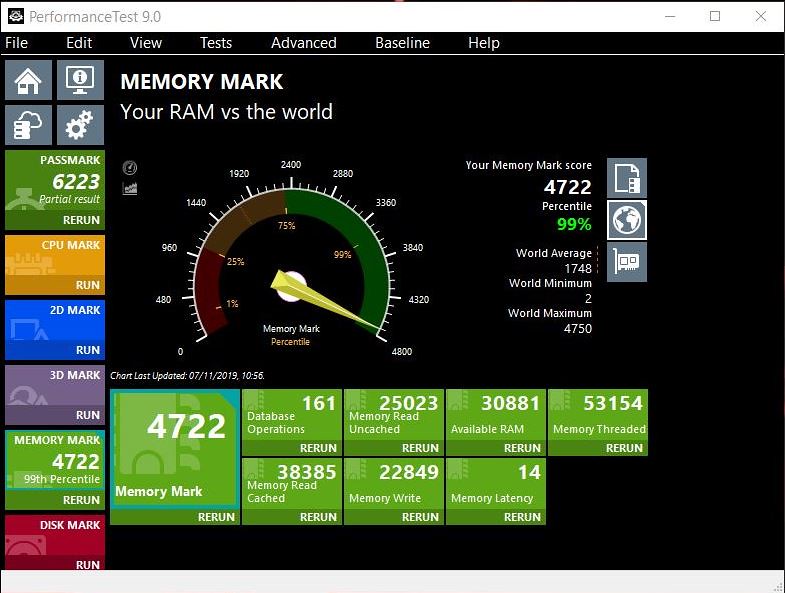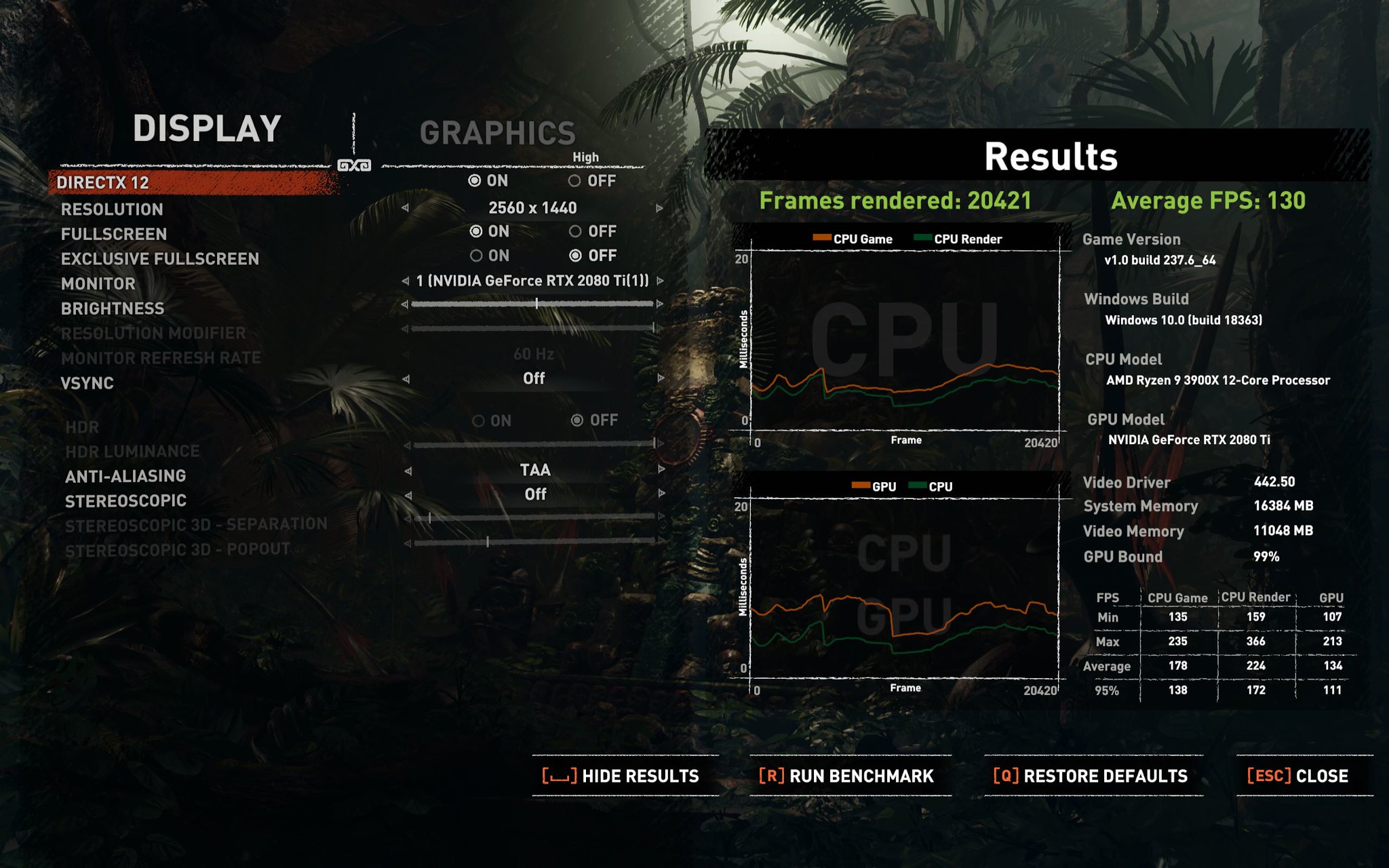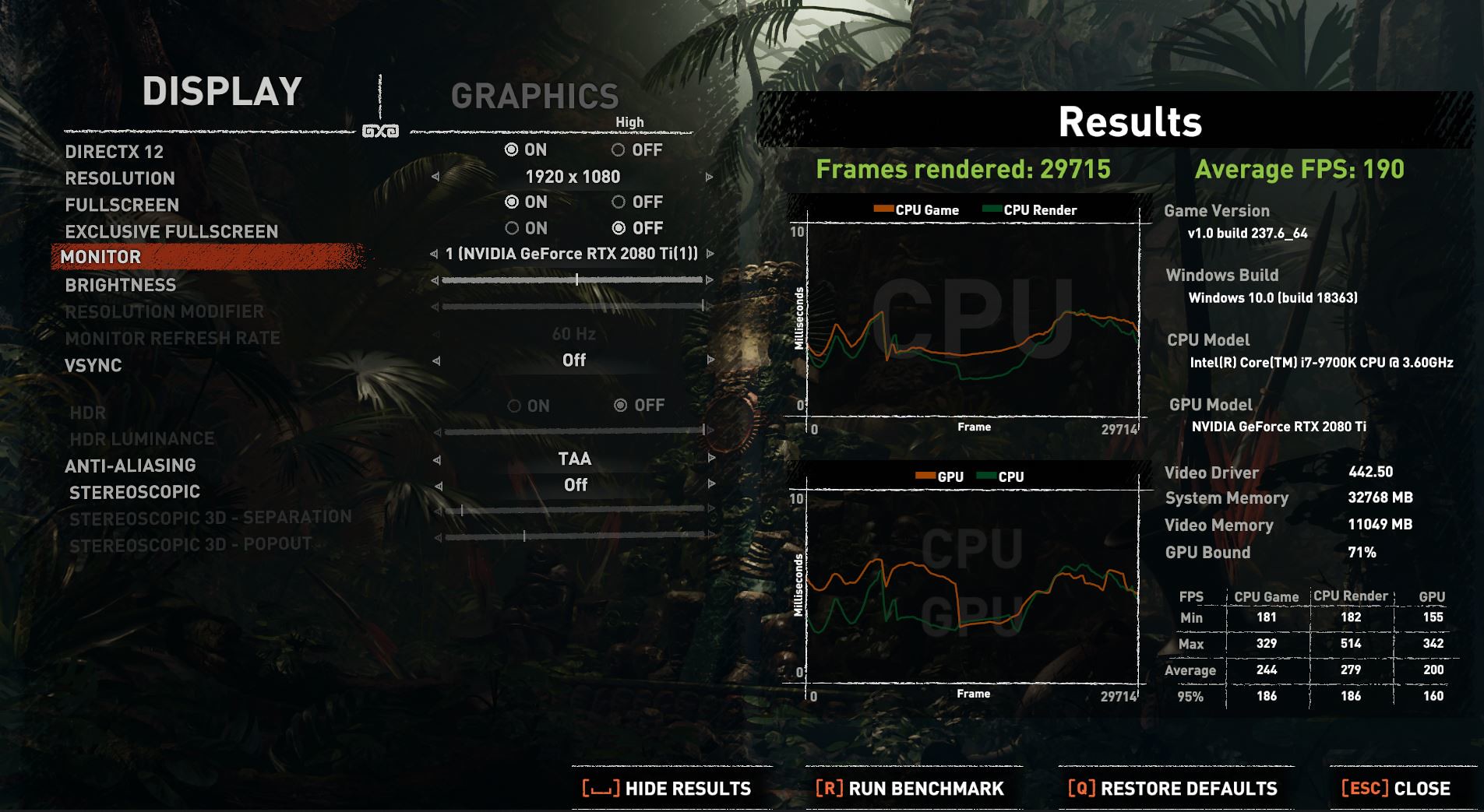Soldato
The chart you demonstrated above is a batch test. I'm not sure you've worded that correctly as ANY batch test is always FULLY MULTI-THREADED. Consequently, they have a lot to do with core count. Extra cache will aid performance though the main reason for the better performance of the 3900x is the full usage all core clock speed + IPC. The Threadripper 2950x is ~3.5ghz compared to the 3900x which is ~4.2Ghz plus it has higher IPC (~18% I believe). This alone could account for the 3900x's 12/24 better performance than the 2950x 16/32 not including the larger cache:
2950X = 16x3500 = 56,000
3900x = 12x4200 x1.18(IPC) = 59,472
Either way that graph is definitely a fully multi-threaded graph and I can pretty much guarantee you that every CPU on that list was maxing out all of its cores when doing that batch test. As such it is not really the topic of this thread, neither is power consumption or value for money etc. We're just concerned with single threaded performance or as I prefer, non-fully multi threaded performance.
I told you its a batch test.
Anandtech has done IPC tests for the actual core:
https://i.imgur.com/hXbCqQG.png
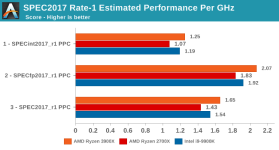
Again actually look at the graph CAREFULLY:
https://i.imgur.com/IkN4Pwy.png
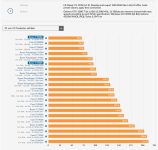
A Ryzen 7 2700X is 58% slower than a Ryzen 7 3700X in the test,and a Core i9 9900K is 45% slower in that test. All have the same core counts. Look at CB20,a Core i9 9900K is slightly ahead of the Ryzen 7 3700X. A Core i7 7820X is barely slower than a higher clocked Core i9 9900K,which is also interesting,so maybe memory bandwidth is also useful here.
The fact is the cache(and maybe even memory bandwidth) impacts the score massively - Lightroom exports are more determined by cache it appears,than the number of cores and the single threaded performance. The same with the latency stuff I was talking about. Performance in applications isn't just about pure single threaded performance,ie,there are other factors at work here.
If someone were to try and gauge IPC from using Lightroom export tests,a Core i9 9900K would be considered very poor against a Ryzen 7 3700X. That is the problem,there is more to apparent single threaded performance than just IPC or clockspeed. Even software which has lack of optimisations for newer CPUs,cause problems,ie,like I tried to explain with Fallout 4.
That game is latency and memory bandwidth bound,to the extent you can have the SAME HEDT Skylake cores on a mesh bus(such as the aforementioned Core i7 7820X),and the consumer Skylake cores on a ring bus,and the former is worse. So the same IPC. This game is bound by the first two cores which become saturated,and scales less to the next four.
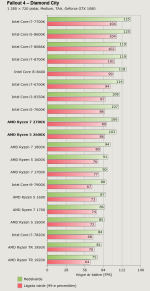
A Core i7 7820X at worst should be at 3.6GHZ base clock,and the Core i5 7600K at best would be at a 4.2GHZ boost clock. For a maximum 16% clockspeed difference,performance is close to 30% higher on the Core i5 7600K with the same Skylake cores,less memory bandwidth,and half the cores(and the game will use the two extra threads in a minor way). That is what going from a ring bus to a higher latency mesh bus,and a different cache topology does,in a game which is still very single thread bound.
Zen performance not only increases with single threaded performance in the game,it also benefit a lot from latency and memory controller improvements from Zen to Zen2(can only going by forum tests for Zen2,but there is a decent improvement).
Then you move to audio processing benchmarks,where Zen and Zen+ were behind down to latency concerns. People thought it was down to only single threaded performance,but no it was latency too. Then you had some of the bioinformatics stuff which was single threaded,but its major bottleneck was RAM and memory bandwidth,which impacted performance more in the realworld.
You need to appreciate its not all about IPC*clockspeed for every piece of software,its about other things too which affect APPARENT single threaded and multi-threaded performance.
Also,in the case of many here they are talking about gaming too,which I have shown is just not about IPC,or single threaded performance. Things such as latency or even an engine not being optimised for newer CPUs,can cause big problems.
I know this from having to profile hardware recommendations for friends for non-standard software. On the interwebs people tend to only look at basic IPC and clockspeed as a measure. You need to consider different software maybe bottlenecked by other metrics,which affects performance. Its why wheeling out CB or any "insert name" software can't tell you a full picture.
This is why it needs to be investigated on a case by case basis.
With this being an overclockers forum, a few folks do run overclocked CPU's. The big issue for me is that most of the charts and reviews do not compare standard overclocked systems (High end air/AIO).
As I've demonstrated, there can be quite a disparity in the results when comparing stock systems with overclocked ones. This is more pronounced in software that uses less than the maximum threads available.
The fact that Humbug, an experienced member with over 30,000 posts, can be so off base believing his Ryzen 3600 with PBO would be faster than an overclocked 9700K in single threaded (or non fully multithreaded) software makes me wonder if there is a general lapse of understanding of;
If you look at DXO Photolab on Humbug's post you will see it uses about 8 threads.
- How software utilises cores/threads
- How overclocking on both platforms works.

My 3900X exhibits a similar behaviour:
Though look at the core clock speeds for the 3900X taken during just the 18secs while DXO Photolab was exporting during the test.
The columns are Current - Minimum - Maximum - Average

You can see that 8 cores are using the average of ~4.25Ghz
This is the 3900X core clock during the ~9min Single Thread run on Cinebench r20

You can see that 1 core did achieve 4.6Ghz though the average of that core (along with 1 other) was 4.5Ghz. The other cores are way below it.
We all know that the advertised clock speed of Ryzen 3900X is 4.6Ghz but what a few people don't understand is that under most conditions where software is using several threads then it does not reach that speed, plus you normally can not do an all core overclock exceeding 4.6Ghz. Most people will be able to do all core overclock 4.3-4.4Ghz. Though as Grim5 stated earlier in the thread, doing an all core overclock on Ryzen 3000 will lessen Single-Threaded performance.
Compare the DXO Photolab test of the 9700k at stock speeds.

and now overclocked.

The Cinebench R20 Single-Threaded difference between Humbug's 3600X and my 9700K is ~12%. The Geekbench single threaded benchmark difference is 20% (I made a mistake earlier running Geekbench in 64bit, the 32bit difference is 20%) but the real world performance in software that can leverage ~8 cores/threads then the difference is ~35%.
Also if you look at the Photoshop Puget Overall score for the top rated systems score is ~940 for the 3900X, 3960X and 9900K, my 9700K scores 1136, which is ~20% faster. This is simply the current position when it comes to overclocked systems on both platforms and has been for the last 6 months. This may well change in the next 6 months but that is another topic.
Those PS tests are probably a combination of lightly threaded and multi-threaded though,if not a Core i3 7350k at 5GHZ would score in the top few percent.

The rest of this also you don't need to explain this to me - you need to explain it to Humbug as we had this discussion before in another thread. However,as I told you before I don't overclock and neither do almost all of my friends,including those who are interested in photography. I only know one mate who would overclock their system. A lot of them won't overclock as they need full stability for certain stuff they run. I don't do it because I have a mini-ITX system(and yes there are those who like overclocking those,but its not what I do). My previous two Intel CPUs were desktop Xeons which were locked. So for me the stock results are relevant in my use case and they are also especially relevant for the SFF systems I run,as they are more TDP limited.
This may well change in the next 6 months but that is another topic.
You see the biggest change I have heard rumoured is the move from 4 core CCX to an 8 core CCX. If this happens and it means there is no inter-CCX latency and lower memory-CCX latency with Zen3,I think that will have a larger impact on performance than core IPC and clockspeed improvements,especially in certain games and in audio processing. Personally I would be very surprised if Zen3 is a massive improvement in IPC and clockspeed over Zen2. After all AMD is not using 7NM EUV.
Last edited:



